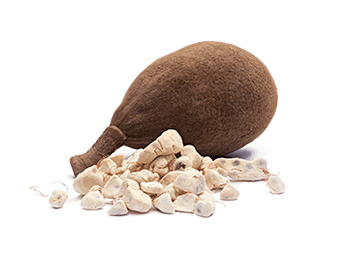
Obesity vs. Malnutrition
Is it possible to be overweight and undernourished at the same time? Most people associate over-eating with nourishing the body but this doesn’t necessarily hold true. Many research studies have proven the connection between micronutrient deficiency and obesity. It has also been observed that obese individuals have a higher risk of developing metabolic conditions due to low micronutrient intake.
According to the World Health Organization in 2014 1.9 billion adults worldwide were overweight while more than 600 million were obese. To be considered overweight, the Body Mass Index (BMI) needs to be between 25.0 and 30.0. A BMI of 30.0 or higher falls within the obese range.
In order to maintain a healthy weight, calorie intake should more or less equal energy expenditure. However, the micronutrient deficiency found in obese individuals can normally be traced to simple food choices. Processed food diets are lacking in nutrients and full of empty calories.
This brings us to the two sides to malnutrition. When people hear the word ‘malnutrition’ they immediately think of malnourished children in impoverished nations. Generally, no-one considers an obese individual from a wealthy nation to be nutrient-deficient. In reality, ‘undernutrition’ is the side of malnutrition which includes inhibition of growth, being underweight and muscle wasting. The other side consists of being overweight and having micronutrient deficiencies.
Most common Micronutrient Deficiencies associated with Obesity
Micronutrients refer to substances needed by the body in trace amounts to achieve normal growth and development. Although only trace amounts are necessary, micronutrients are important for maintaining certain metabolic processes like glucose and insulin pathways. These trace nutrients are so vital that some studies suggest deficiencies in micronutrients may contribute to the development of type 2 diabetes.
Some of the more common micronutrient deficiencies noted in obese individuals include: vitamin D, chromium, thiamin and antioxidant vitamins such as vitamin A and E. Studies have shown that when patients with diabetes or obesity are supplemented with micronutrients, they experience improved blood sugar levels, glucose metabolism and improved insulin use.
Possible Solutions to Obesity and Micronutrient Deficiency
Environmental, psychological, medical and social factors all come into play when looking for a solution to obesity. However, individuals can start from the platform of simply exercising and eating the right amount and type of calories. Eating right means consuming less high caloric foods lacking in nutrients and choosing more nutrient dense foods such as fruits, vegetables and whole grains, including quality proteins like nuts, legumes, seeds and soy products.
Dietary supplementation in conjunction with diet and exercise work synergistically to promote optimal health, aiding weight loss in obese individuals and balancing weight in undernourished individuals.
NP Nutra® offers a variety of premium nutraceutical ingredients which can be used for weight loss/management applications. These include:
For more information, please click on the product links.
References:
https://ods.od.nih.gov/factsheets/WeightLoss-HealthProfessional/
https://www.ncbi.nlm.nih.gov/pmc/articles/PMC3313629/
http://news.harvard.edu/gazette/story/2011/04/twin-dangers-malnutrition-and-obesity/
http://www.who.int/topics/obesity/en/











